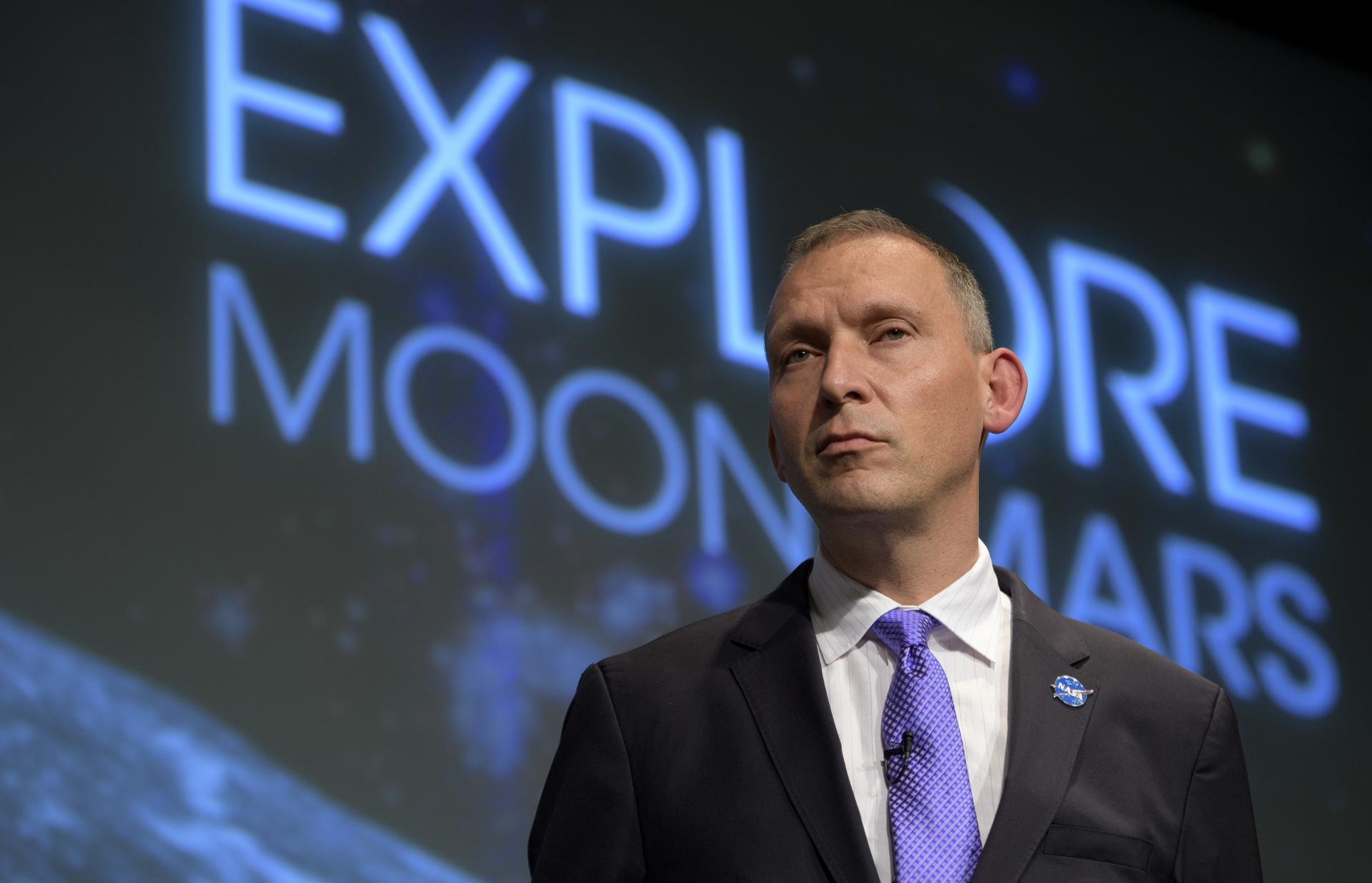
What if our Moon did not exist?
Life on Earth would have been rather different without our closest celestial neighbour. Here are ten reasons we should appreciate the presence of our magnificent Moon, says astrophysics professor Ben MooreExternal link.
1. Keeping time
Human settlements and the first agriculture began around 10,000 years ago. The cycles of the seasons, flooding of river valleys or the onset of winter were surely appreciated, but how to know when they would occur? Nearly every emerging civilisation began tracking time with a lunar calendar. The year was subdivided into 12 lunar months, where each lunar month was the period between the same lunar phases, such as from the first site of the crescent Moon to the next. This calendar is still used in some cultures today.
2. Our place in the solar system
The ancient Greeks figured out that the phases of the Moon were due to sunlight reflecting off a spherical body. They knew that the Moon orbited a spherical Earth, and they understood the cause of the eclipses. They measured the size of the Earth with a short stick and the geometry of shadows. They determined the distance and size of the Moon using eclipses, and with this knowledge they measured the size of the Sun and its distance. So over 2,000 years ago the ancient Greeks understood our place in the solar system, thanks to the existence of our Moon.
3. A matter of gravity
After a lengthy period of intellectual darkness, the second scientific revolution began in earnest with the likes of René Déscartes, Galileo Galilei, Nicolaus Copernicus and Christiaan Huygens. However, it was Isaac Newton who made the largest leaps with his famous text Principia in the 17th century. His breakthrough in understanding gravity and planetary motions began by comparing how fast an apple fell to Earth with the motion of our Moon. Without this comparison I doubt that Newton would have come up with his famous law of gravity

4. Rocket science
When Galileo pointed one of the first telescopes at the Moon in 1609, he saw lunar craters for the first time and the shadows of sunlight from the lunar mountains. Astronomers began constructing ever larger telescopes to study our Moon, hoping to find signs of life. Some of the earliest science fiction stories were tales of journeys to the Moon, considered a utopian world. Science fiction stories such as Jules Verne’s From the Earth to the Moon caught the imagination of the first rocket scientists – Konstantin Tsiolkovsky, Esnault Pelterie, Hermann Oberth and Robert Goddard. It was these scientists’ foundational work that ultimately enabled the Apollo programme.
5. The Cold War
The United States and the Soviet Union started a race to the Moon in the 1960s. At its peak, the US Apollo programme employed over 400,000 people from over 20,000 companies and universities. In 1969, at a cost of over $100 billion in today’s money, the Americans succeeded in placing astronauts on the Moon and bringing them home safely. I dread to imagine how the Cold War would have progressed without our Moon offering a relatively safe distraction!
6. The length of our day
Four and a half billion years ago, we think that a planet collided with our young Earth, scattering debris into orbit that formed our Moon. The evidence for this comes from the lunar rocks brought back by the Apollo programme – the Moon rocks have a nearly identical atomic composition as the Earth, suggesting that the Moon was once part of the Earth. It was this planetary collision that set the Earth spinning and led to our current 24-hour day. Without this giant impact the Earth would most likely be rotating at a very different rate, perhaps like Venus where one day lasts 116 Earth days.

7. A stable climate
Once spinning in space, an object will keep spinning forever. But a spinning planet will not always spin in the same orientation. Mars tips and tilts as it spins, thanks to the small gravitational tugs from Jupiter and Saturn. Calculations show that the axis about which the Earth spins should swing by as much as 30 degrees on a timescale of a few hundred thousand years. That’s much shorter than the evolutionary timescale – can you imagine life slowly emerging from a warm ocean that suddenly becomes a frozen wasteland? The gravity of our Moon pulls on the bulge of the Earth, preventing it from wobbling in space, thus maintaining a stable climate and preventing global ice ages. I doubt that we would be here without the presence of our Moon. At the very least evolution would have followed a very different path – so thank you, Moon!
8. Effect on life
Every culture has come up with folklore about the Moon, from the ‘Man in the Moon’ to the effects of the Moon on humans. It turns out that ‘lunacy’, the idea that the light of the full Moon can drive you mad, dates back to Roman times. But large scientific studies have recently shown that the Moon does not affect our brains, crime rates, birth/death rates or human behaviour in any way. However, there are many species that are affected by the cycles of light from the Moon, or by tidal cycles, such as entire coral reefs that spawn simultaneously during the light of the full Moon and lions being more likely to attack humans when the Moon wanes.
9. The tides
The ocean tides are a result of the gravitational force of the Moon – it is stronger on the side of the Earth that is closest to the Moon and weakest on the far side of the Earth. This results in two ‘tidal bulges’ that point towards the Moon. As our Earth spins in 24 hours, we pass through both of these tidal bulges and witness two ocean tides a day. The average height of the ocean tides is about one metre, but thanks to the complex geometry of the land masses, tides can reach ten metres in certain places. If there were no Moon, there would still be ocean tides caused by the gravity of the Sun. But despite the Sun being much more massive, it is much further away, so the tides would not be as high.
10. A stepping stone to Mars and the stars beyond
Every major space agency has announced plans to return to the Moon in the next decade, to construct lunar villages for astronauts and scientists, and perhaps the occasional space tourist. This new space race is exciting for many reasons. Perhaps most interesting is using the Moon as a base to prepare for the human exploration of space. I don’t think we will be landing on Mars in my lifetime. Billionaires such as Elon Musk lack the money and manpower to achieve this. Moreover, we don’t know if the human body can survive the multi-year journey. But launching rockets from the low-gravity Moon would save an enormous amount of fuel, and there is plenty of fuel there. Billions of tons of water ice have recently been discovered in the depths of the lunar craters that can be turned into rocket fuel – hydrogen and oxygen. The Moon is an ideal stepping stone to Mars and stars beyond.
The views expressed in this article are solely those of the author, and do not necessarily reflect the views of swissinfo.ch.
Opinion series
swissinfo.ch publishes op-ed articles by contributors writing on a wide range of topics – Swiss issues or those that impact Switzerland. The selection of articles presents a diversity of opinions designed to enrich the debate on the issues discussed.

In compliance with the JTI standards
More: SWI swissinfo.ch certified by the Journalism Trust Initiative









































You can find an overview of ongoing debates with our journalists here . Please join us!
If you want to start a conversation about a topic raised in this article or want to report factual errors, email us at english@swissinfo.ch.